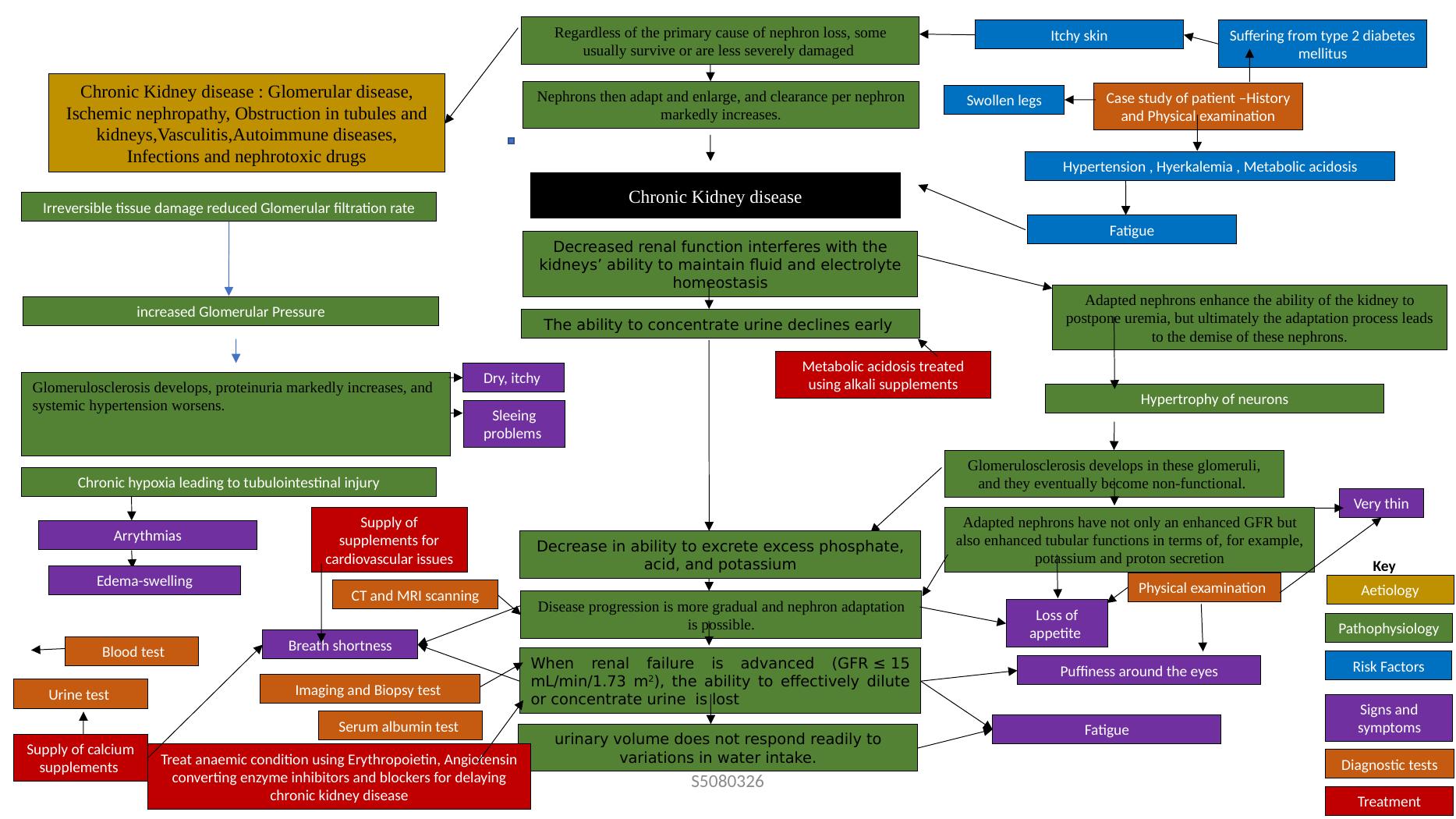Chronic Kidney Disease: Case Study and Discussion
Create a concept map and provide a written explanation for a case-study scenario on diabetes type 1 and its associated complications.
5 Pages1570 Words166 Views
Added on 2022-10-19
About This Document
This presentation discusses the symptoms, pathophysiology, and treatment of chronic kidney disease. It includes a case study of a patient with chronic kidney disease due to diffuse nephron loss, and provides information on risk factors, diagnostic tests, and treatment modalities.
Chronic Kidney Disease: Case Study and Discussion
Create a concept map and provide a written explanation for a case-study scenario on diabetes type 1 and its associated complications.
Added on 2022-10-19
ShareRelated Documents
End of preview
Want to access all the pages? Upload your documents or become a member.
Chronic Kidney Disease and Diabetic Nephropathy
|10
|1365
|80
Pathophysiology of Obesity and Diabetic Kidney Disease
|3
|1605
|40
Chronic Kidney Disease Assignment 2022
|7
|1598
|16
Wtitten project - concept map
|1
|315
|84
Diagnosis and Treatment Modalities (PDF)
|5
|1023
|68
Nursing: A Case study 2022
|10
|2846
|16


